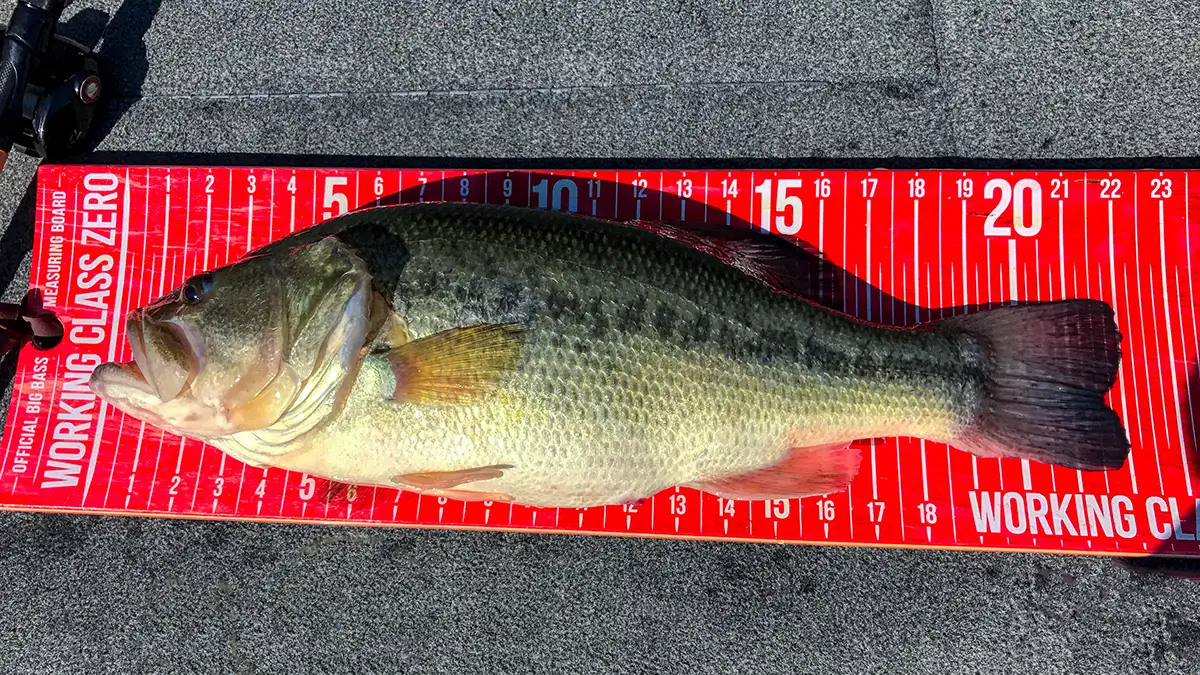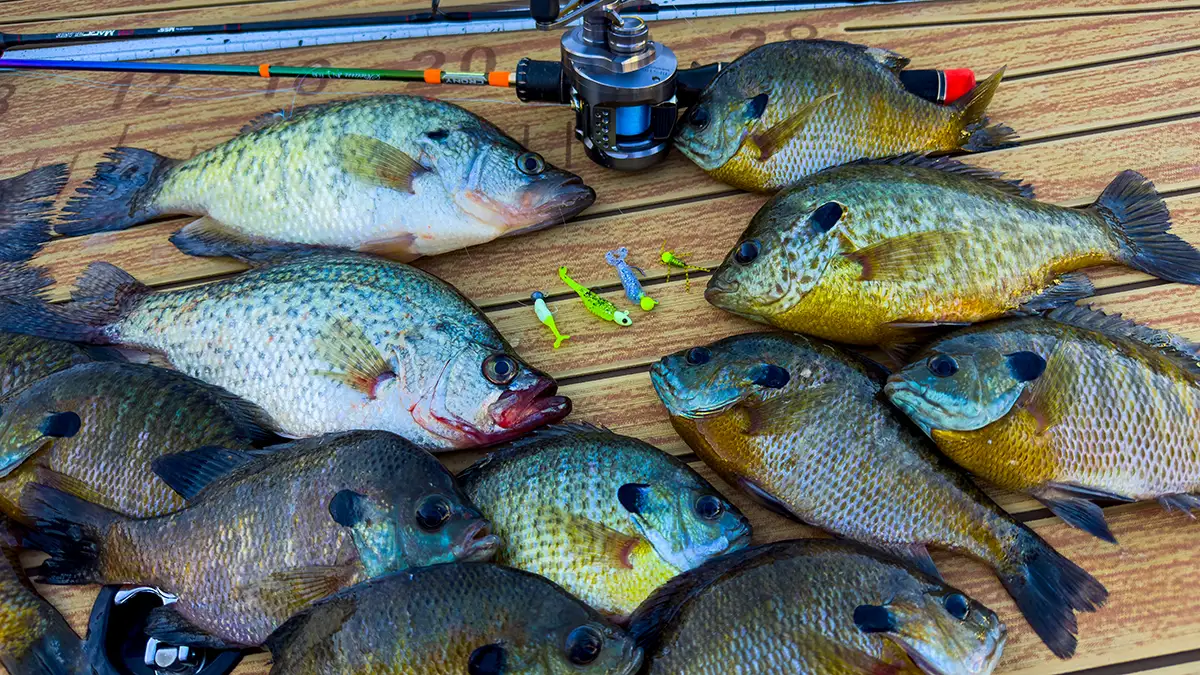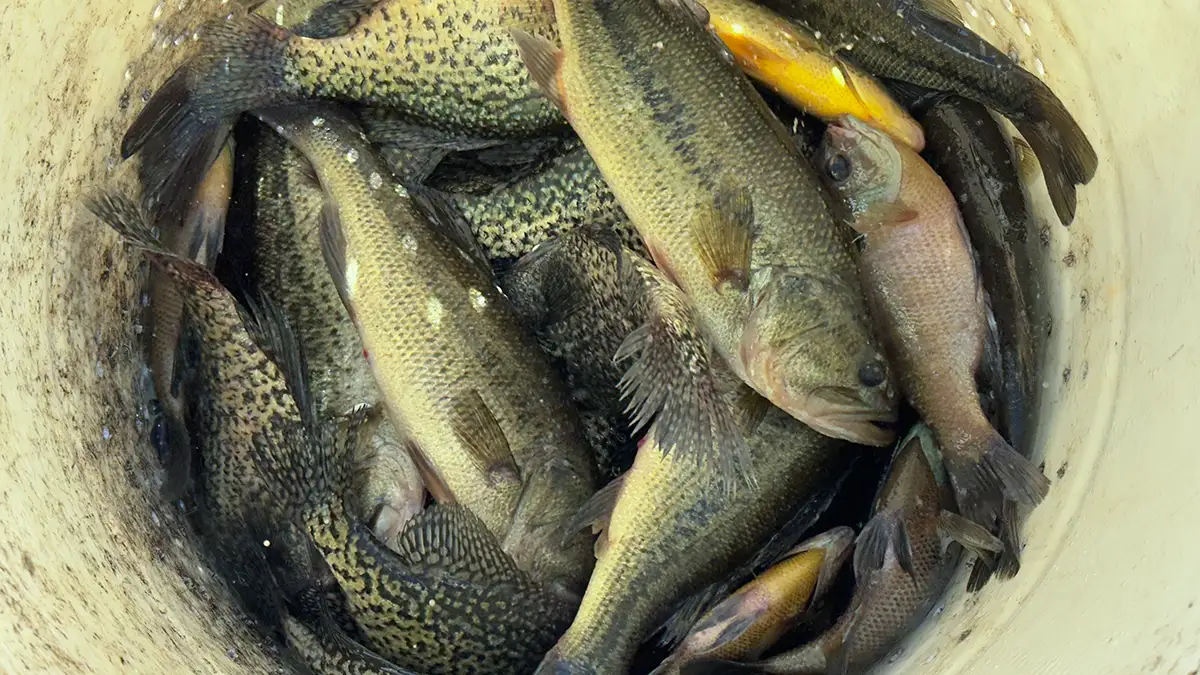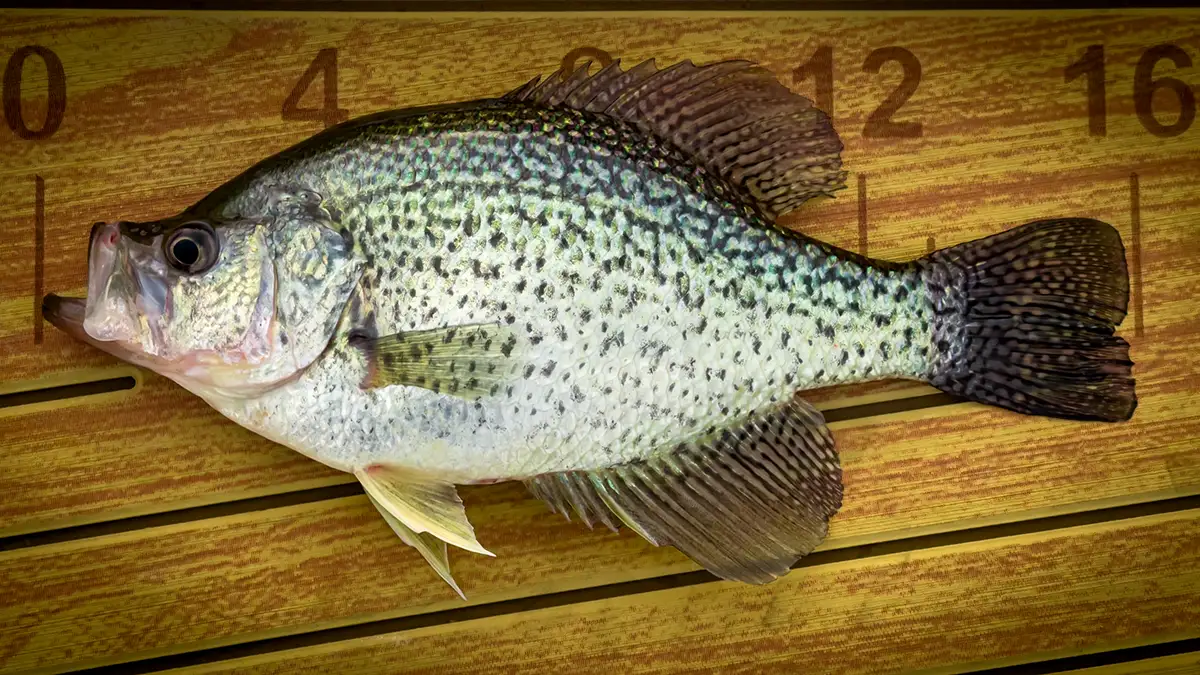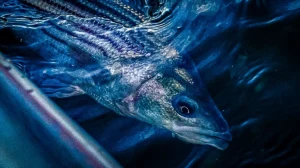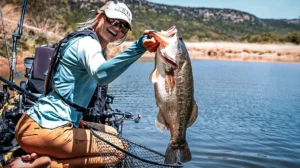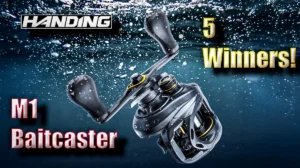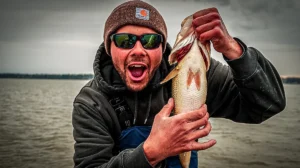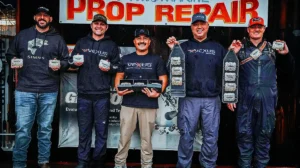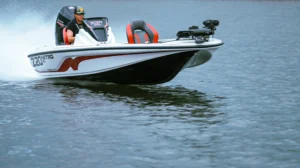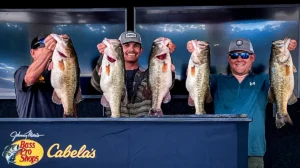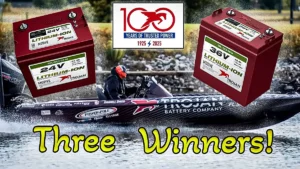Catch and Release has been heralded as the saving grace of bass fishing in the modern era. While I don’t discount that statement as fisheries definitely can flourish if the good fish are left to reproduce and create more big fish. That’s certainly a good thing. And letting a good fish go, also gives another angler, and hopefully several other anglers, a chance to experience a similar rush in fishing. All good things related to catch and release.
I have also seen, however, where the catch and release proliferation goes off the rails. I have seen a good many stunted small fisheries, something that is not talked about nearly as much because there is this foreboding notion that if we keep bass we are destroying fisheries. I have also seen some absolute hammer lakes where a bunch of big ones live and there are not a ton of little ones in it. The fishing is not easy but the lakes are full of nice big bass. A testament to the competition being low and the results for quality bass being better than average.
Traveling and fishing has made me question whether our approach to catch and release has been handled wrong by us in some cases as an angling community. So I thought I’d weigh in on a few points and counterpoints I often here discussed related to this topic.
WHY SLOT LIMITS STRUGGLE TO HELP
I was fortunate enough to not only attend the Kentucky Department of Fish and Wildlife’s Black Bass Summit this spring, but I also rode over to Frankfort with Adam Martin who is the western fisheries biologist for Kentucky as well as the head of the black bass management team for the state. Adam has probably peer reviewed and is more well read on black bass than maybe anyone in the country, let alone our state. So I consider it a privilege to talk about bass and fisheries management with him.
So the Summit was great but the discussions there and back were probably even better. Riding in the truck with us was Mark Menendez, Elite Series professional angler who also happens to have a fisheries management degree as well. We were invited guests along with about 25 other passionate anglers from around the state.
I’ve had a lot of time to reflect after that Summit and the discussions before and after and it had me pondering a lot on how to help improve fishing on random lakes across the country. There were examples given in the attempts to manage a few lakes with slot limits. The purpose of those slot limits being to protect the fish with the potential to get large, while culling out the smaller fish in an effort to reduce population numbers to better fit the dynamics of that certain fishery.
Many variables affect the dynamics on any fishery. It seems a myriad of details go into predicting and perpetuating good fisheries. The fertility of the lake, the age of the lake, the abundance of cover, the abundance of food, the quality of the water, the fluctuations of the water, angling pressure, external predation, population densities, their relativity to forage abundance and a whole lot more.
So managing a fishery is very complex. And there is no “simple” one answer to fix any one fishery. Some would have you believe stocking non-native fish is the solution because it worked in other places. But the people spouting those half-cocked, one-sided solutions, are generally singularly focused on creating results they achieved in non-linear locations with completely different sets of variables. The old thinking that “what worked in one place will certainly work in this place” fallacy overstates the desired outcome and understates the complex differences between fisheries and their physical locations.
In the common man’s mind, every fishery is equal save for what fish it has in it. When nothing could be further from the truth. Some lakes are old, with decaying habitat, and much less fertile waters. No matter how much money and fish you throw at it, it won’t improve much or measure up to what a much more fertile fishery, further south with a much longer growing season and replenishing forage base can manage. Yet that seems to be the prevailing thinking with many anglers.
In places where slot limits have been instituted, they often don’t yield impressive results with populations remaining stunted for many years. The problem being that anglers don’t keep the small fish. They are so hell bent on catching an over and keeping it, that they won’t keep the 6 unders they caught that would be the quicker fix to making the overall fishing quality better.
We want bigger fish, but won’t take the smaller fish out to fix the overarching problem of over population of stunted fish.
WHY SMALL FISHERIES DESERVE PROTECTION
I’ve of course seen the flip side of the coin where word gets out on a really great lake, guys come and beat it up for a few seasons and suddenly the fishing got pretty terrible. Those fisheries need management and a lot of the smaller fisheries are not as highly managed as big reservoirs because they don’t see the number of anglers. But just a handful of anglers can have a big effect on a small fishery.
It’s why management is so important. And why catch and release is important. Because I also think the door can swing the other way on a smaller fishery where you can kill off all the big fish too quickly with nothing behind them to refill the year classes. And suddenly a once great small lake is a “ho-hum” fishery now.
So catch and release can go both ways with management. But ultimately, the angling community is the deciding factor on whether management will be effective on a fishery. The success and failure lies with the anglers. Keep too many and you can hurt a small fishery even if it’s within the guidelines. Don’t keep the small ones on a big fishery and you may have small fish for a long time.
THE CASE FOR KEEPING SMALL FISH
So we keep small fish to help overpopulated and stunted lakes to help manage the population to better fit the fishery and the forage base. A lot of anglers don’t want to keep small fish. They want enough for a meal or a bunch of meals and like catching big ones. All natural things for anglers to want fishing on any fishery. But for the long term fun on a fishery, maybe raping and pillaging the big ones is not the best course of action. But to have more fun with big fish, you need to keep the population in check.
If we only focus on keeping big ones, we potentially make the fun more short lived. Kentucky Lake experienced a down fall from poor spawns and holes in year classes. It’s taken the fishery a long time to cycle back. A lot of big fish got taken out. While others died of old age. And there just weren’t the fish behind them to take their place for several years. But it’s an extremely fertile fishery that is rebounding nicely.
I actually prefer to eat the smaller fish, like crappie. I like a 10 or 11 inch crappie way more than the 14 to 18-inch ones. I like how they fry up more crispy. Same for bass. I love to eat cold water spotted and small largemouth bass. Their meat is perfect for cooking. So I’m an advocate for keeping smaller fish to give us more room to grow big ones and to give other anglers the enjoyment of catching more big fish.
REMEMBER, FISH DON’T LIVE FOREVER NOR DO FISHERIES
The flip side of the argument is that fish don’t live forever. So at what point is it okay to catch and keep a big one? I still think that’s a personal choice. There’s nothing wrong with keeping a a big ones here and there if you are talking about a fishery with plenty of fish. If we keep all of the big ones, then we see places that were once the best fisheries around reduced to shadow versions of their former greatness.
A lot of blame is being put on electronics. Talking about ruining small lakes. But social media is really what did it. Everyone got on there and bragged about their catches and then everyone flocked there and wiped out all the big ones. And a bunch of guys complaining are the ones who constantly posted big dead fish. And now there are no big fish there. Your social media did more damage than a piece of equipment ever did.
So I am more of keep the small ones, but not against a few big ones mixed in. If it’s crappie and the lake is plentiful with keepers, have at it. If you only catch a few nice bass on a lake, why would you want to keep all of the nice ones. Take the little ones out and see if we can make a few more nice ones. Leave some seed for your future trips.
Now when you talk about keeping trophies, that’s where a lot of debate comes in because people want to show off their prized catch. Mounting fish is not as prevalent as it once was, and replicas are getting painted now by expert painters giving a nice show piece for your memory. For most a good picture will suffice.
Many anglers believe releasing a big one is more giving back to the angling community than anything else. You are saying to angling community I hope you can catch a big one too. And sure they don’t live forever, so you don’t necessarily have to feel awful for keeping a big fish. But if we all go every day and only keep big ones, eventually that will catch up with our fishery.
Most bluegill on lakes like Kentucky Lake will only live 4 or 5 years. While a red ear sunfish might live 12 or 13. Most crappie will only live 6-8 years. So throwing them back forever doesn’t always work. And small crappie can breed big crappie. Because most of the time, on large reservoirs, a 10-inch crappie is just a young crappie, not a stunted crappie. So it potentially can spawn future 2-pounders just as well as a 2-pounder spawns future 2-pounders.
I went to a fish camp this spring and had a ball helping them harvest small bass and small crappie to keep their population dynamics in check. We fried fish, drank and fellowshipped together for several evenings and it made for a super fun weekend. We also caught an 8-pound bass on that trip. A testament to management of the populations.
So, yes, catch and release is still a personal choice. Lakes are managed by game and fish agencies for consumption. A lot of anglers would do well to remember that. They are not managed to be trophy fisheries for the most part. Especially the larger reservoirs. The struggling lakes with stunted populations could actually use more harvesting to increase the overall size of fish. And taking a few big ones out doesn’t hurt all that much on larger fisheries where year classes are abundant and fish only live 5-10 years. The less competition for food, the better quality you will have as a whole.
And, if slot limits are put on a lake, keeping the unders will likely get you to end goal quicker.


